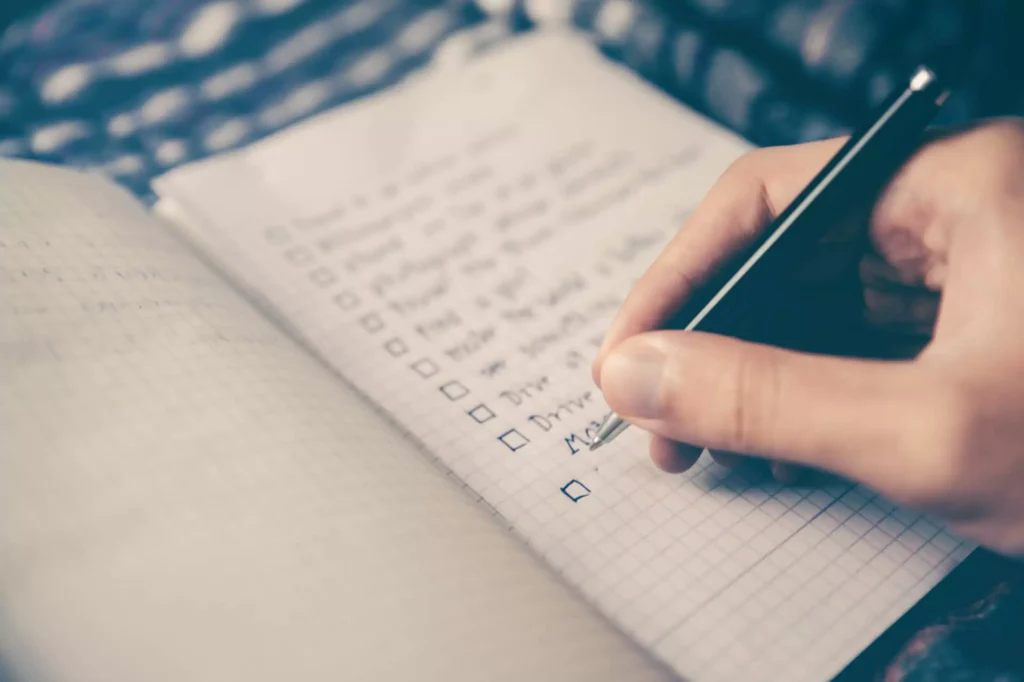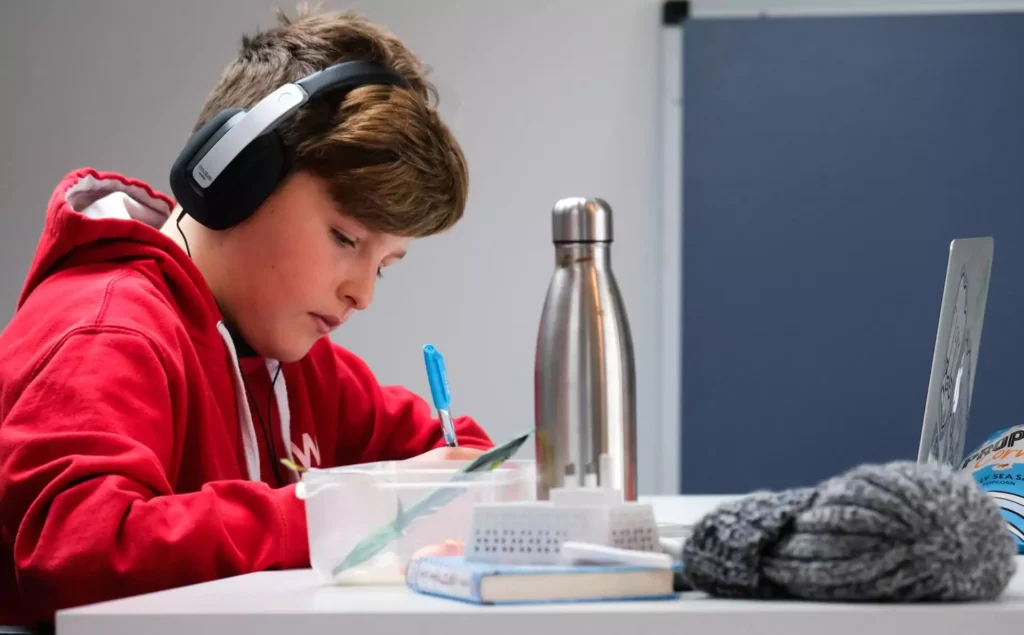Let’s first be clear about this. A good student is more than just one who gets good grades. Undoubtedly, getting good grades helps you advance academically and opens up several opportunities for you. However, having good grades is one of many requirements for being a successful student. Your education is made up of more than just your grades. Being an excellent student takes more critical thinking abilities, focus, discipline, and regularity.
Realizing that successful students are not necessarily smarter or more talented than other pupils is crucial. All they need are good study habits, focus, and discipline. They have better study habits and are more focused and disciplined. So don’t worry if you don’t think you’re a smart student. You will learn Everything there is to know about becoming a successful student from this article today.
Table of Contents
1. Work Systematically

The first characteristic of a good student is that they follow established procedures to complete their assignments. These methods could be anything from timetables to organized study schedules. It is common for lazy students to wait for inspiration to strike them.
2. Refine and Examine
If you’re wondering how to succeed in school, review all the new knowledge you learned that day at night. While this daily assessment may occasionally appear monotonous, we guarantee it will take up a little of your time. It is a crucial phase that ensures you fully understand the subject and concepts. Additionally, by doing this, your brain stores this knowledge in long-term memory.
3. Document Everything.
You must keep track of Everything to be a good student, including homework assignments, test and exam dates, project due dates, competition dates, school and family events, etc. Try not to assume that you can remember anything; instead, keep a record of Everything to stay organized. Although this advice may seem rudimentary, life gets busier as you gain experience. So you can use this advice for the rest of your life.
4. Make a weekly calendar.
You must always plan before you study, according to an age-old proverb. What distinguishes a good learner is this. It not only enables you to maximize your time but also helps you stay on track. The thrill of crossing something off your list cannot be compared to the tasklist’s initial intimidating appearance. Even though we know it is impossible to adhere to a schedule minute by minute, making one is still beneficial. Planning your approximate weekly calendar around school, extracurricular activities, religious obligations, and other recurrent events is possible.
5. Do Not Allow Distractions
Distractions are the main barrier to academic success. Willpower alone won’t get you through distractions. Only a small percentage of us have strong enough resolve to resist distractions. You must turn off or put your phone in focus mode, avoid potential distractions, and finish your study session.
6. Establish proper posture
Yoga practitioners and athletes have been harping on the value of excellent posture for ages. Your mood will increase, as well as your ability to learn and remember things. It is suggested that you sit up straight, bring your shoulders back, and lift your chin to maximize the effectiveness of your study session. You may study for a longer period in this manner without feeling fatigued.
7. Keep from multitasking
Despite all the talk about how important multitasking is, only do it sometimes. Nothing in this world is more draining than trying to multitask. Because multitasking is only switching between tasks, it is not truly multitasking, which diminishes your ability to study. You’ll notice that you’ll do more in less time if you concentrate on one task at a time.
8. Believe in Yourself

According to research, kids who believe they can improve their intelligence do so. That’s how amazing conviction is. Knowing is a quality you may develop over time. Never describe oneself as “moronic” or “not scholastically slanted” since, with the right mindset, you can become more shrewd.
9. Concentrate on Short Bursts of Time
Working in blocks of 30 to 45 minutes and then taking a 5- 10-minute break is often advised. For most students, working in shorter bursts of time is more productive than concentrating for several hours at a time.
10. Regularly exercise
Practice making yourself a better student. Regular exercise helps you remember information better, sharpens your focus, and increases creativity, which is in addition to the other health benefits of exercise. What does this mean for pupils who need to work harder in class? Make practicing a consistent part of your weekly regimen. Exercise for at least 20 to 30 minutes each session, three to four times weekly.
11. Be organized to be a good student.
Unorganized students waste valuable time seeking things or notes or completing last-minute assignments they forgot about. Always check whether homework is due the next day by setting a daily reminder. Setting reminders to begin studying for tests and exams also helps. Use the MyStudyLife app for these objectives. Additionally, you can do that by using a planner or Google Calendar.
12. Split up large tasks
The size of the duties is the biggest cause of procrastination among students. Large jobs can seem more difficult to kids. Therefore, it’s crucial to divide each large work into smaller ones. Instead of selecting to start writing your history paper, you may divide the process into smaller ones, such as choosing a topic first.
13. Get Eight Hours of Sleep.
Successful students are compelling students. As the research demonstrates, rest is essential to becoming a fascinating learner. Sleep improves learning and promotes memory. So, set a goal to obtain 8 hours of sleep every night by going to bed at roughly the same time every day.
14. Establish a Comfortable Studying Space
Here are some suggestions for improving the study environment:
- Daily desk cleanup
- Ensure you have all the stationery, notebooks, etc. required.
- Make sure the room has the right amount of lightning.
- If needed, use earplugs to block out noise.
- Post one or two motivational sayings in your study area.
- Obtain a comfortable chair.
- Remove all commotion from the space.
15. Be aware of deadlines
Use Google Calendar, Google Keep, or a regular planner to keep track of your critical dates, and you’ll be a more successful student by keeping your deadlines under control.
16. Write down notes in class

The number of students who tell me they don’t take notes in class constantly surprises me. Taking notes in class is very important because doing so enables focus and improves your understanding of the concepts. I like to take notes in a systematic, linear fashion. You may read about a few different note-taking techniques here.
17. Make inquiries
An excellent strategy to keep interested in your studies is to ask your friends and teachers questions about what you are studying. Asking questions demonstrates your understanding of the new information. Asking foolish questions is okay since you can always learn something new. Additionally, paying attention in class will make your questions more intelligent and insightful.
18. Eat Well
According to research, the more nutritious you are, the better your brain functions. Furthermore, you will perform better in school if your brain functions properly. As a result, you should concentrate on consuming green vegetables and staying properly hydrated.
19. Manage your thoughts
Students who get unmotivated or lose their attention are usually discouraged. They frequently internalize their anxieties and feelings of discouragement after experiencing great defeat. Always keep your thoughts in check and avoid internalizing these failure-related concerns—believe in yourself.
20. Spend a few moments getting ready for each class.
According to a quote from Benjamin Franklin, “By failing to prepare, you are preparing to fail.” Your daily activities are greatly impacted by the mental preparation you put out for class. You should review the prior topic each day before class because the new topic will probably build on what you already know. Although it will take a little time, this method will be worthwhile in the long term.
21. Give Yourself Rewards
Treat yourself to a small reward at every opportunity to keep yourself motivated. For instance, you may treat yourself to a 5-minute YouTube movie after working for 45 minutes. Alternatively, if you enjoy working out, you can schedule a 30-minute workout after finishing your math and science homework. Prizes are a simple way to motivate you to work even when you don’t want to.
22. Manage Your Stress
Poor stress management increases the likelihood of performance anxiety and lower academic achievement in students. You can manage your stress by taking deep breaths, meditating, and planning.
23. Follow the Deadlines

Again, this advice may seem dated, but time and time again, it has proven to be helpful. You must always submit your homework by the deadline. Make submitting your schoolwork on time a requirement, and put forth your best effort on each task; this is the cornerstone of academic success.
24. Take on a challenge
You should put in extra effort each day to push yourself to complete a little more work than the required homework. These little actions move you closer to your objective. These modest actions could include anything, such as searching online for materials or watching an educational video, making it easier to relax while studying.
25. Rest a While
Getting good grades is only one aspect of doing well in school. It involves leading a more wholesome, thoughtful life committed to helping others. Setting aside time for leisure is crucial for leading a healthy life. To prevent burnout, schedule downtime into your weekly agenda.
26. Be Reliable
It’s critical to be consistent with your study time and adhere to a regular weekly routine. Less often will you need to be “inspired” to start working the more consistent you are. Instead, out of habit and regularity, you’ll start working, which is essential to efficiently manage your time as a student.
27. Have a Specific Goal or Purpose for each Study Session
Many students tell me that they plan to “study hard” regarding their studies. It could sound nice, but it shows that the student needs a clear goal or strategy. Therefore, effective students do not approach their studies in this manner. You should have a specific goal for each study session, outlining what you hope to accomplish, and this could entail thoroughly reading through a set of notes, finishing the analysis of a short narrative, answering all 30 multiple-choice questions, etc.
Take a look on this article to: STUDY SMARTER INSTEAD OF HARDER!
28. Use Memory Techniques
There are some effective memory strategies to help you retain information more quickly. Here are a few of the most practical ones we’ve discovered to be most successful throughout the years:
Acronyms, chunking, visualization, and association.
29. Test Yourself

Refrain from assuming you thoroughly understand the subject matter simply because you have read the notes and examined some examples. You never know; perhaps throughout those study periods, you were daydreaming. What further ought to be done? Test yourself from time to time. Make sure you complete many practice questions and keep track of your errors so you don’t repeat them on the test.
30. Take Practice Exams Under Exam Conditions
Too many practice examinations taken under exam circumstances could be more practical due to the time commitment. However, you should take at least two to three practice exams in an exam-like setting before each exam, and this will aid in thorough preparation and teach you how to manage the exam’s time constraints.
31. Get Ready Ahead of Time
Testing preparation is never a good idea. One to two weeks before each scheduled test, I advise you to set a reminder on your phone (or make a note in your planner) so that you can begin studying. I advise you to study at least four weeks before a large exam. This advice is essential for students to use.
32. Find Different Ways to Help Other People
Students frequently lose motivation when they place an excessive emphasis on achievement and too little on commitment. Training aims to equip you with the knowledge and skills to assist others. When students disregard this, they can feel as though school is pointless. Keep things in perspective by learning simple ways to contribute to your capacity as a student, such as pitching in, raising money, handling problems at your school, and helping the downtrodden.
33. Develop a Sense of Purpose
Create a sense of direction. Kids can only focus and be motivated consistently if they have a sense of purpose. Students will likely lose motivation if they believe the school’s only goal is to earn straight As.
34. Do Not Place Others’ Faults
The best method to build strength is to accept complete responsibility for your actions, which suggests you won’t criticize anyone for Everything in your life. No blaming your teachers, guardians, or friends. No blaming the principal or the government, no pretending to be the subject. When you apply this mindset to your time as a student, you’ll realize that you can always do something to improve the situation. Never make it a habit to point the finger at others. It never presents a positive image of you, and, to put it mildly, you always come across as lazy and careless.
Conclusion
If you use all the tips in this article, it’s almost impossible that you will improve as a student. Of course, it’s not fair or possible to think you’ll use all the tips simultaneously. You can use each of these tips one at a time. After all, one step at a time is how you get to where you want to go. As a student and in life, success depends on the daily decisions and habits you make. Adding one of these daily steps will help you live a more peaceful, mindful life.
Try out one or two tips in the next week, and invite some people who want to do the same. Also, you should be steady with what you do. Slowly, you’ll find that you’re becoming a better student and living a more healthy life at the same time.
